


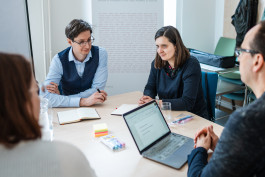
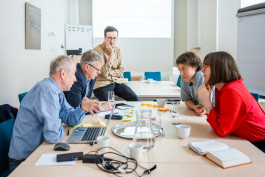
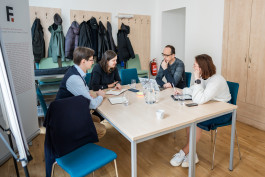
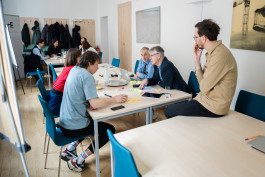
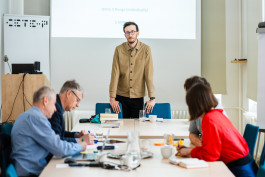

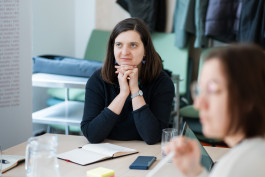
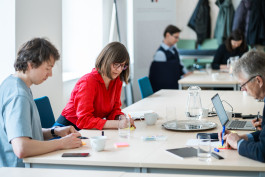
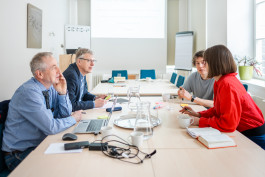
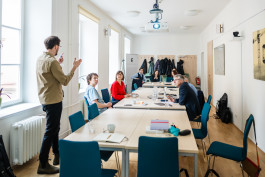

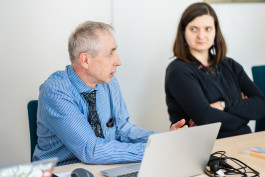



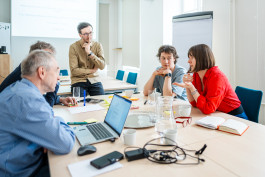
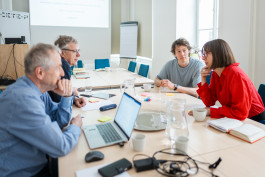

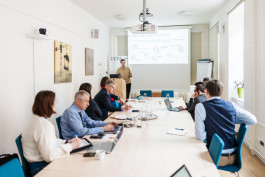


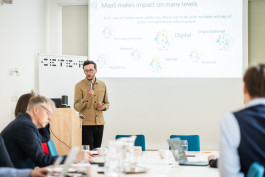

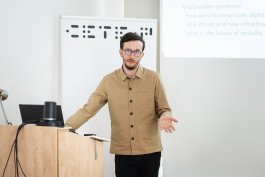
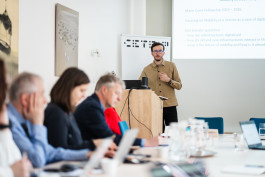
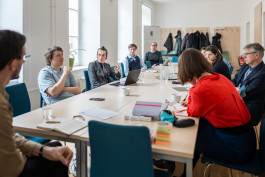
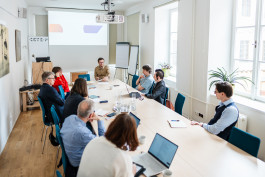


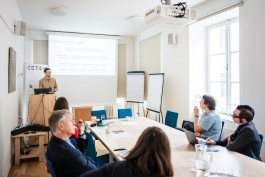
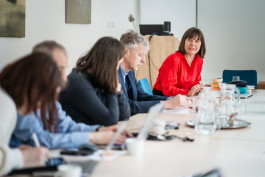
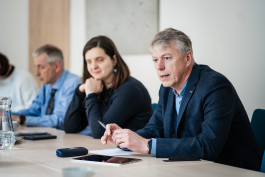
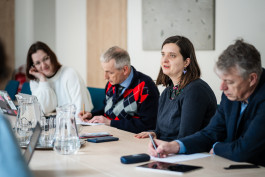
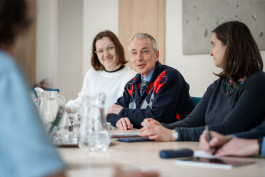
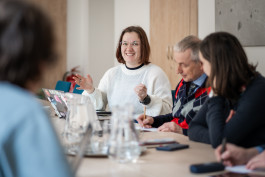
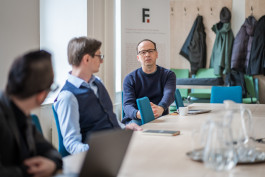

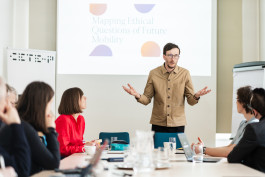
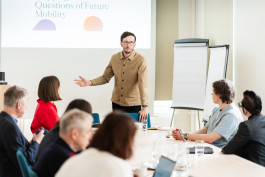
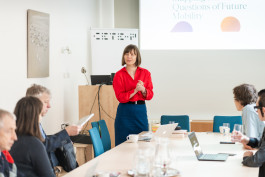
CETE-P hosted a workshop entitled Mapping Ethical Questions of Future Mobility (26 March 2025) led by Dr. Karol Kurnicki, who was a Visiting Researcher at CETE-P in March 2025. The event was part of Karol Kurnicki’s EU-funded Maria Skłodowska-Curie Action Postdoctoral Fellowship (MSCA PF) project on digital platforms for urban mobility. The workshop gathered a group of specialists and interested researchers from adjacent fields to discuss the ethics of transportation infrastructures and their dynamic transformations through processes of digitalisation.
The workshop opened with a presentation of Karol Kurnicki’s research on the digitalisation of mobility infrastructures and its resulting impact on the organisation of public transportation and everyday travel. Platforms that are already in use in our contemporary mobile societies were critically discussed, with a particular focus on Prague, Warsaw and Berlin.
The workshop was divided into two parts and was designed as a hands-on engagement with the participants. In the first step the participants reflected on the problems they experience in everyday commuting. This short exercise aimed at making everyone aware of the current state of transportation and the possibilities of thinking creatively about potential solutions.
The goal of this part was to capture with a symbol:
1) the main challenge that the participants experience in their everyday mobility and
2) the key value in how public transportation should be designed.
One symbol was a sign banning cars from the roads, the other a squirrel representing safety, frequency and predictability of public transportation.
In the second part of the workshop, the participants were tasked with identifying the main ethical problems that emerge with digitalisation of mobilities, and subsequently to design a digital platform that would eliminate those problems. Different approaches were possible in completing this task: from designing an application interface, through business model or a product narrative to a digital stack. The main goal was to identify points of contention between the values and principles of a good, sustainable, socially responsible mobility system and the technology that is capable of supporting such values.
In the final discussion, the group considered new ethical questions which need to be asked with regard to a technology — which is seemingly neutral and professionally made — but which will shape considerably our societies, our collective mobility and our cities in the future.
The workshop and Karol Kurnicki’s stay at CETE-P was part of the MSCA-funded project: MOBI-DIG: Digitalisation and the Future of Mobility. A Study of Mobility as a Service Platforms [MaaS] (2023–2026) based at the Leibniz-Institute for Regional Geography (IfL), Leipzig, Germany.
Photos: Romana Kovacs




































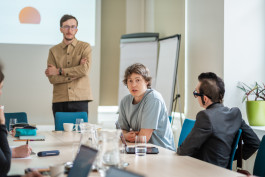


CETE-P hosted a workshop entitled Mapping Ethical Questions of Future Mobility (26 March 2025) led by Dr. Karol Kurnicki, who was a Visiting Researcher at CETE-P in March 2025. The event was part of Karol Kurnicki’s EU-funded Maria Skłodowska-Curie Action Postdoctoral Fellowship (MSCA PF) project on digital platforms for urban mobility. The workshop gathered a group of specialists and interested researchers from adjacent fields to discuss the ethics of transportation infrastructures and their dynamic transformations through processes of digitalisation.
The workshop opened with a presentation of Karol Kurnicki’s research on the digitalisation of mobility infrastructures and its resulting impact on the organisation of public transportation and everyday travel. Platforms that are already in use in our contemporary mobile societies were critically discussed, with a particular focus on Prague, Warsaw and Berlin.
The workshop was divided into two parts and was designed as a hands-on engagement with the participants. In the first step the participants reflected on the problems they experience in everyday commuting. This short exercise aimed at making everyone aware of the current state of transportation and the possibilities of thinking creatively about potential solutions.
The goal of this part was to capture with a symbol:
1) the main challenge that the participants experience in their everyday mobility and
2) the key value in how public transportation should be designed.
One symbol was a sign banning cars from the roads, the other a squirrel representing safety, frequency and predictability of public transportation.
In the second part of the workshop, the participants were tasked with identifying the main ethical problems that emerge with digitalisation of mobilities, and subsequently to design a digital platform that would eliminate those problems. Different approaches were possible in completing this task: from designing an application interface, through business model or a product narrative to a digital stack. The main goal was to identify points of contention between the values and principles of a good, sustainable, socially responsible mobility system and the technology that is capable of supporting such values.
In the final discussion, the group considered new ethical questions which need to be asked with regard to a technology — which is seemingly neutral and professionally made — but which will shape considerably our societies, our collective mobility and our cities in the future.
The workshop and Karol Kurnicki’s stay at CETE-P was part of the MSCA-funded project: MOBI-DIG: Digitalisation and the Future of Mobility. A Study of Mobility as a Service Platforms [MaaS] (2023–2026) based at the Leibniz-Institute for Regional Geography (IfL), Leipzig, Germany.
Photos: Romana Kovacs
•• All News
Celetná 988/38
Prague 1
Czech Republic
This project receives funding from the Horizon EU Framework Programme under Grant Agreement No. 101086898.